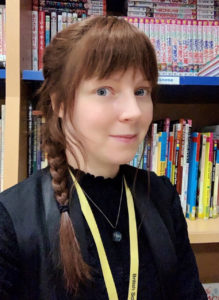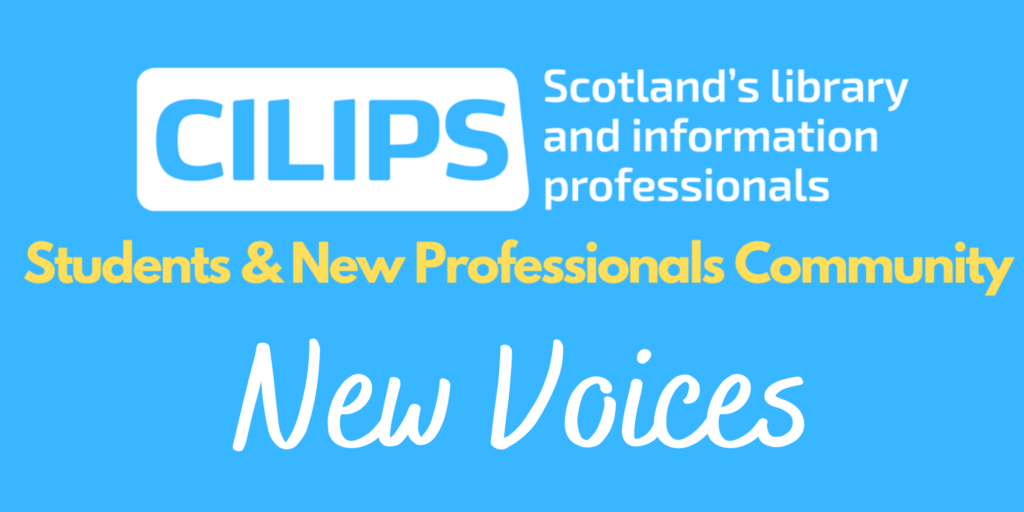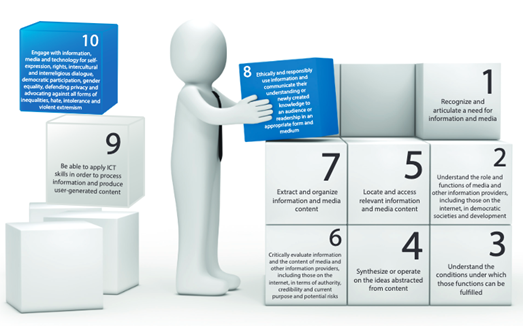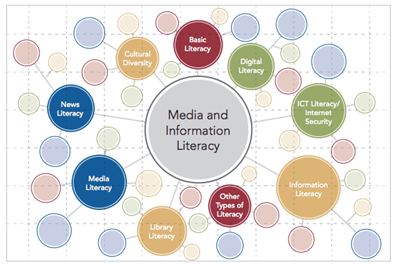New Voices RGU Student Series – Rebecca Chong
Category: Blog, New Voices, New Voices, RGU Student Series 2022
In this 2022 Student Series for the New Voices blog, the CILIPS Students & New Professionals Community will be sharing the views of Robert Gordon University students from the MSc in Information and Library Studies. With special thanks to Dr Konstantina Martzoukou, Teaching Excellence Fellow and MSc Course Leader, for organising these fantastic contributions.
 Today, we’re hearing from Rebecca Chong. Rebecca, originally from Glasgow, has been employed as a teacher in Hong Kong and Japan for the last six years. Working in an international school she nurtured a determination to focus on the development of early literacy skills and a genuine love of reading in her pupils who had English as a second language. This recently, alongside assisting in the library of an international school in Tokyo, encouraged her to enrol in the MSc Information and Library Studies course at RGU.
Today, we’re hearing from Rebecca Chong. Rebecca, originally from Glasgow, has been employed as a teacher in Hong Kong and Japan for the last six years. Working in an international school she nurtured a determination to focus on the development of early literacy skills and a genuine love of reading in her pupils who had English as a second language. This recently, alongside assisting in the library of an international school in Tokyo, encouraged her to enrol in the MSc Information and Library Studies course at RGU.
Small adjustments can lead to big changes
Information literacy refers to the possession of a set of skills that enables a person to find, interpret, organise, use and share information, while understanding the legal and ethical constraints regarding information use (CILIP, 2018). It is a skill that we further develop within higher education where research uses many types of sources.
In recent years there has been a significant increase in the number of students pursuing higher education abroad (OECD, 2013; Hertzum and Hyldegård, 2019), meaning many students attending English speaking universities do not speak English as their first language. With information literacy connected to higher educational achievement, international students face particular challenges when developing and using information literacy skills to attain success.
Are there key areas where academic librarians can accommodate this development? Outlined below are some suggested ideas, from a teacher’s perspective, regarding how to overcome three key barriers and advance the information literacy skills of international students attending UK universities.
Language barriers
Within higher education, language barriers can pose a hurdle with spelling conventions and specialist vocabulary comprehension creating difficulty when searching for, analysing and using resources, especially when resources are written for a western audience. To help resolve this challenge academic librarians, in collaboration with faculty members, could provide keyword lists aligned to research topics, relevant synonyms, and definitions or translations of complex vocabulary. In addition, they could recommend texts within reading lists more suitable for international students or digital resources with translation functions (Johnson, Partridge and Hughes, 2014; Arkoudis et al., 2013).
When asking my students to conduct research assignments I provided keywords that they could search for in documents. They also accessed information from online sources that enabled them to select the language and difficulty level of the information they wanted to read or listen to.
Lack of experience with digital resources
In higher education, international students may have difficulty accessing and using digital sources either due to language difficulties, as spelling errors or limited vocabulary impede search success, or through lack of experience in using digital resources. As we go through life, in this digital world, we naturally pick up information literacy skills, and these are further developed and significantly built upon once we get to a higher education institution.
Academic librarians and faculty members could run workshops on using digital resources to access information, which could include strategies for scanning databases for documents and information, and written exercises to help students develop an academic writing style (Johnson, Partridge and Hughes, 2014).
Early in the school year, my students participated in teacher-led research as a class, and as they gained understanding and confidence with how to access digital resources and extract information, adapted to working in groups, partnerships or independently.
Lack of ongoing or one-to-one support
Collaborating with faculty members to provide periodic workshops has the potential to provide academic librarians with teaching skills whilst providing continuous support to international students. Academic librarians could also set up a mentoring programme pairing international students with volunteer librarians, enabling international students to receive tailored one-to-one support. This could highlight other areas of need, such as additional clarification around referencing (Aytac, 2016). Academic librarians would be able to share this information with faculty members, allowing them to collaborate further in meeting the needs of international students.
In my classroom students were supported as they developed their information literacy skills by myself and by other students with advanced skills.
The increasing diversity of students attending universities impacts greatly on academic structure, as universities need to adapt provision to provide an inclusive learning environment that supports all students. As such, a one-fits-all approach is insufficient in providing for the needs of diverse learners. While there are many ways in which faculty members can adjust their practice to accommodate such students, academic librarians possess the most expertise in guiding practice and could take a central role to enable students to develop accomplished information literacy skills (Soltani and Nikou, 2020).
Thank you to Rebecca for sharing these insights into what teaching has taught her about helping students with English as an additional language to develop their information literacy skills, as well as ideas on how to maximise the key role that library professionals can play in supporting that development.
Stay tuned for more in the 2022 New Voices RGU Student Series coming soon and be sure to check out the rest of CILIPS SNPC’s New Voices blog.
Bibliography
ARKOUDIS, S., WATTY, K., BAIK, C., YU, X., BORLAND, H., CHANG, S., LANG, I., LANG, J., and PEARCE, A., 2013. Finding common ground: enhancing interaction between domestic and international students in higher education, Teaching in Higher Education, 18(3), pp. 222-235. Available from: http://dx.doi.org/10.1080/13562517.2012.719156 [Accessed 1 November 2021].
AYTAC, S., 2016. Use of action research to improve information literacy acquisition of international ESL students, New Library World, 117(7/8), pp. 464-474. Available from:
https://www-emerald-com.ezproxy.rgu.ac.uk/insight/content/doi/10.1108/NLW-03-2016-0017/full/pdf?title=use-of-action-research-to-improve-information-literacy-acquisition-of-international-esl-students [Accessed 28 October 2021].
CILIP, 2018. CILIP Definition of Information Literacy. [online]. London, United Kingdom: CILIP. Available from: https://infolit.org.uk/ILdefinitionCILIP2018.pdf [Accessed 30 October 2021].
HERTZUM, M., and HYLDEGÅRD, J.S., 2019. Information seeking abroad: an everyday-life study of international students, Journal of Documentation, 75(6), pp.1298-1316. Available from: https://www-emerald-com.ezproxy.rgu.ac.uk/insight/content/doi/10.1108/JD-11-2018-0183/full/pdf?title=information-seeking-abroad-an-everyday-life-study-of-international-students [Accessed 28 October 2021].
JOHNSON, N., PARTRIDGE, H., and HUGHES, H., 2014. Understanding the information literacy experiences of EFL (english as a foreign language) students, Reference Services Review, 42(4), pp. 552-568. Available from: https://www-emerald-com.ezproxy.rgu.ac.uk/insight/content/doi/10.1108/RSR-05-2014-0015/full/pdf?title=understanding-the-information-literacy-experiences-of-efl-english-as-a-foreign-language-students [Accessed 28 October 2021].
OECD, 2013. Education at a Glance 2013: Highlights, OECD Publishing. Paris, France: OECD Publishing. Available from: http://dx.doi.org/10.1787/eag_highlights-2013-en [Accessed 30 October 2021].
RIMOLDI, A., 2020. Thoughtful students with laptop and notebook. Pexels. Accessed from: https://www.pexels.com/photo/thoughtful-students-with-laptop-and-notebook-5553724/ [Accessed 13 January 2022].
SOLTANI, S., and NIKOU, S., 2020. An assessment of academic library services: international and domestic students perspectives, Library Management, 41(8/9), pp. 631-653. Available from: https://www-emerald-com.ezproxy.rgu.ac.uk/insight/content/doi/10.1108/LM-04-2020-0071/full/pdf?title=an-assessment-of-academic-library-services-international-and-domestic-students-perspectives [Accessed 28 October 2021].
UNESCO, 2013. Global Media and Information Literacy Assessment Framework: Country Readiness and Competencies, UNESCO Communication and Information Sector. Paris, France: UNESCO.
Accessed from: https://unesdoc.unesco.org/ark:/48223/pf0000224655/PDF/224655eng.pdf.multi [Accessed 13 January 2022].
UNESCO, 2016. Media and Information Literacy: Reinforcing Human Rights, Countering Radicalization and Extremism. Paris, France: United Nations Educational, Scientific and Cultural Organization.
Accessed from : https://unesdoc.unesco.org/ark:/48223/pf0000246371.page=25 [Accessed 13 January 2022].



